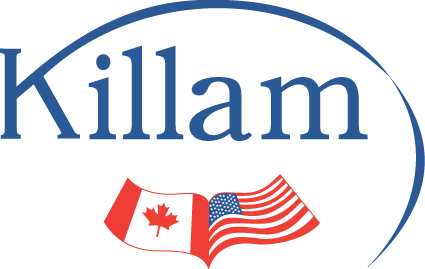-
Study in Canada
-
Study in Canada
-
Study in Canada
Programs in Canada
SUNY Plattsburgh has many ways for Plattsburgh students to study in Canada for a summer, semester or academic year. Below is more information on the Killam Fellowship program through Fulbright Canada. Check out our summer programs page or the National Student Exchange (NSE) program page, if you’re looking for more options.
Current Programs
Killam Fellowship
- Majors Available
- Accounting
- Anthropology
- Archaeology
- Art History
- Art Studio
- Audio-Radio Production
- Biochemistry
- Biology
- Biomedical Science
- Broadcast Journalism
- Business
- Business Administration
- Chemistry
- Communication Studies
- Computer Science
- Computer Security
- Criminal Justice
- Cytotechnology
- Digital Media Production
- Ecology
- Economics
- Education
- English
- Entrepreneurship
- Environmental Geoscience
- Environmental Science
- Environmental Studies
- Expeditionary Studies
- Finance
- Fitness and Wellness Leadership
- French
- Gender and Women's Studies
- Geography
- Geology
- Global Supply Chain Management
- History
- Hospitality Management
- Human Development and Family Relations
- Information Technology
- International Business
- Journalism
- Latin American Studies
- Legal Studies
- Management
- Management Information Systems
- Marketing
- Mathematics
- Medical Technology
- Music
- Nutrition
- Philosophy
- Physics
- Political Science
- Pre-health
- Psychology
- Public Relations
- Religious Studies
- Social Work
- Sociology
- Spanish
- Theatre
- TV-Video Production
- Eligibility Requirements
- Minimum GPA: 3.0
- Class standing: Sophomore, Junior, Senior
- Restrictions: Plattsburgh applicants only
- Killam Eligibility Requirements (includes must be a US citizens)
- Program Information

The Killam Fellowship Program offers SUNY Plattsburgh students the opportunity to study at one of several prestigious Canadian universities for either a semester or academic year. The program offers a cash award of up to $12,000 per academic year ($6,000 per semester) that helps to offset the cost of attendance, along with a health benefit plan.
The Foundation hosts all new Killam Fellows at an Orientation program in Ottawa each fall and again at a seminar in Washington D.C. each spring. Students are also allowed to apply for a mobility grant (not to exceed $800) to undertake educational field trips to broaden their understanding of the culture of the host country. For more information about the program and the various Canadian universities that participate, please visit our website.
“Participating in the Killam Fellowship exchange was one of the most rewarding experiences I have ever had. I went to Memorial University of Newfoundland and took classes in subjects that are not offered in Plattsburgh, some of which changed the focus of my academic interests. It was interesting taking classes with professors and students I was unfamiliar with, and being surrounded by new perspectives at Memorial offered me an opportunity to explore my identity in an academic and international context.
Being in the city of St. Johns was a cultural experience that was, in itself, worth the trip. I had an amazing time with all of the friends I made and have relationships that will last throughout my life. Since the exchange, I have even gone back to Newfoundland and intend on spending much more time there in the future.
From a financial standpoint, the exchange offers a generous scholarship which meant that I didn’t have to take out Federal Loans for that semester, and since I was receiving aid in the form of grants and scholarships already, the reward was more than enough for the exchange to pay for itself.
Another small plus is that the recognition gained from participating in this exchange is a nice feather to have in your cap (it looks good on academic resumes). All in all, I would highly recommend that anyone who wants the experience of travel abroad and an academic challenge apply for a Killam Fellowship.” — Ivan Carlson, Killam Fellow, 2015–2016
- Academic Information
Since there are 20 Canadian universities that participate in the Killam Fellowship Program it is important that you check, prior to applying, that your preferred host campus offers coursework related to your major at SUNY Plattsburgh. Students will need to work with their academic advisors early on in the application process to review coursework that is relevant to the major and to work through a preliminary course approval process.
For more information regarding courses available through the program, please visit the Killam Fellowships website and click on your university of choice to access their course information.
- Housing
Housing options will vary from one university to another. If there are specific questions related to housing/accommodation, please contact the Global Education Office. Please refer to the Killam website for more information.

- Support Services
Students with physical or learning disabilities, should contact the Global Education Office to find out more about the specific services available.
- Cost
Financing a study abroad program is one of the most important aspects to consider before applying. If selected for the Killam Fellowship Program, students will attend their Canada university on exchange and pay Plattsburgh tuition and fees. Please visit the Global Education Office to meet with a Study Away Team member to discuss a detailed cost estimate for the program and review any additional fees that will apply and cost considerations.
Financial aid in the form of scholarships, aid (NYS TAP, etc.), and loans, may be applied to study abroad programs. It is important that you visit the financial aid office at your home campus to discuss your eligibility prior to applying. Please share the cost estimate for your program with your financial aid office.
Please note all students participating in a Plattsburgh program are automatically enrolled and billed for a SUNY international health insurance policy through United Health Care (UHC).
- Application Information
The Killam Fellowship Program is competitive and therefore not all applicants will be selected for an exchange. Additionally, all students who apply should have up to three Canadian universities in mind that they would like to attend as not all selected students are admitted to their first choice university. For additional information about the application and selection process please contact the Global Education Office or visit Killam's “How to Apply” website.
As a U.S citizen, you do NOT need a study permit if you plan to take a course or program in Canada that lasts six months or less. You must have a valid passport with an expiration date of no sooner than six months after the end of your program. You must also be able to provide satisfactory evidence to an immigration officer that you do intend to leave Canada after the conclusion of your study abroad program. You must also be in good health and meed criminal admissibility requirements. If you have committed or been convicted of a criminal offense, you may not be allowed to enter Canada. For more information regarding how criminal convictions can affect your ability to enter Canada, please visit the Government of Canada’s website.
You are ultimately responsible for finding out whether or not you will need a visa for the duration of your studies in Canada. Visit the Government of Canada for more information regarding student visa requirements and the application processApplication Deadline
- December 1 for the subsequent year